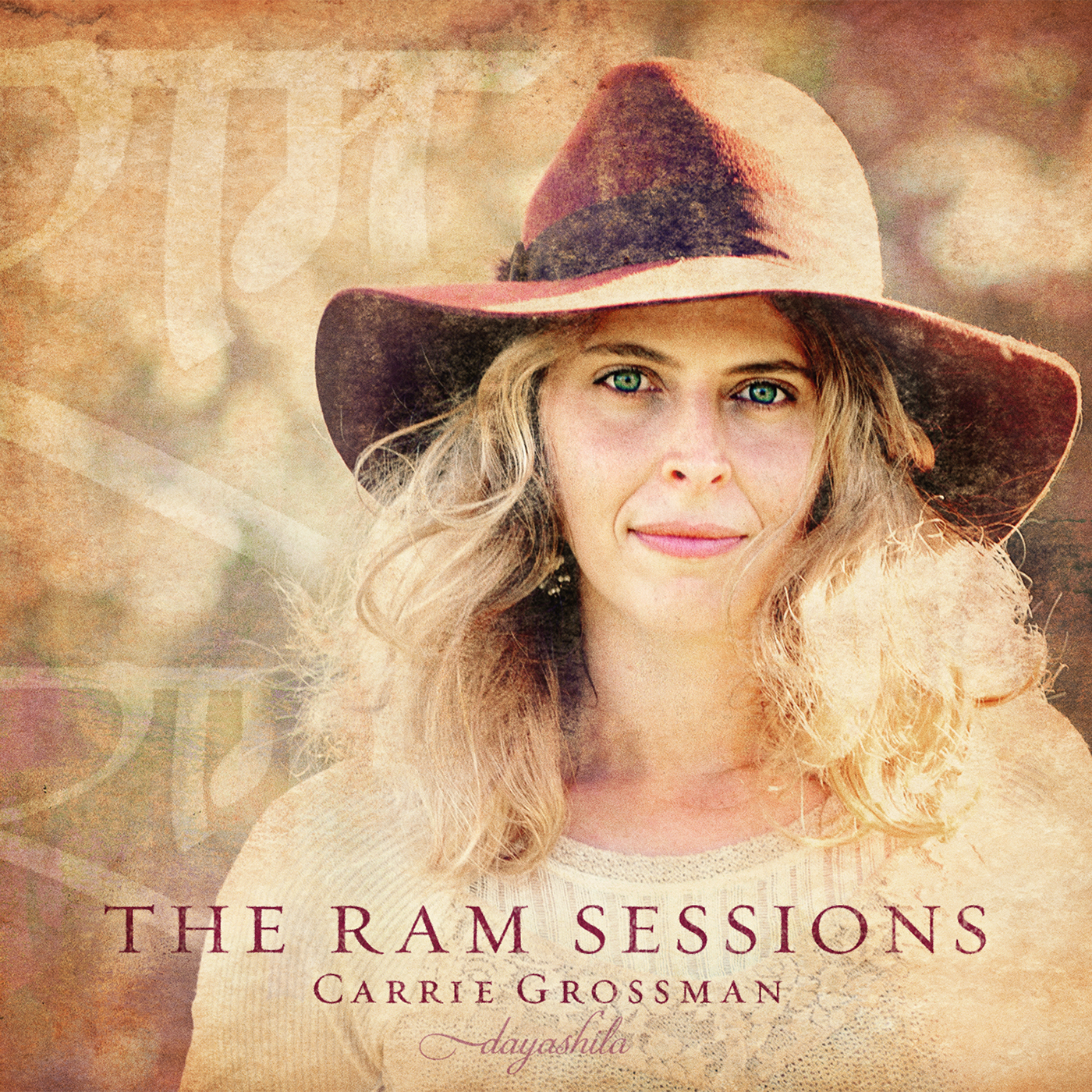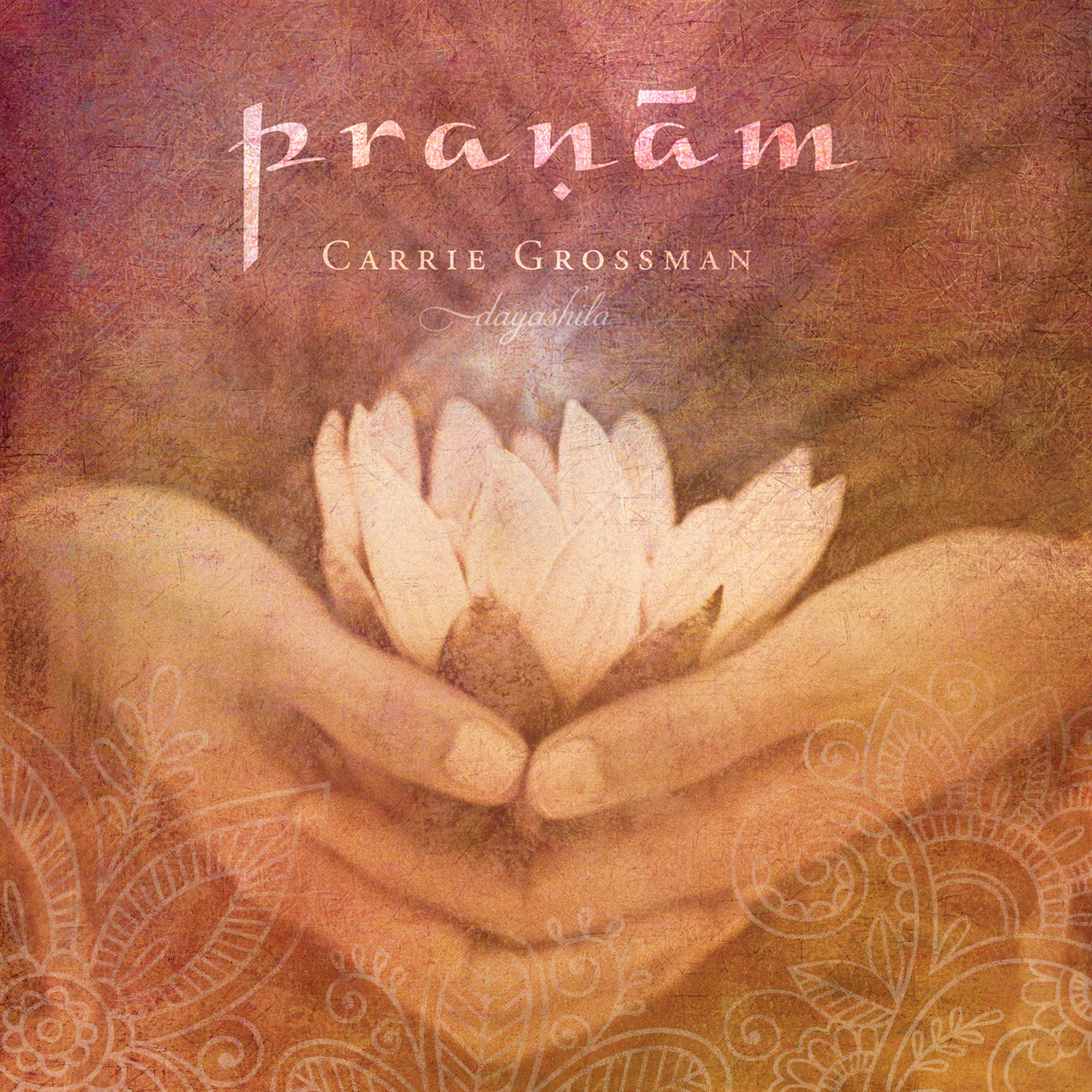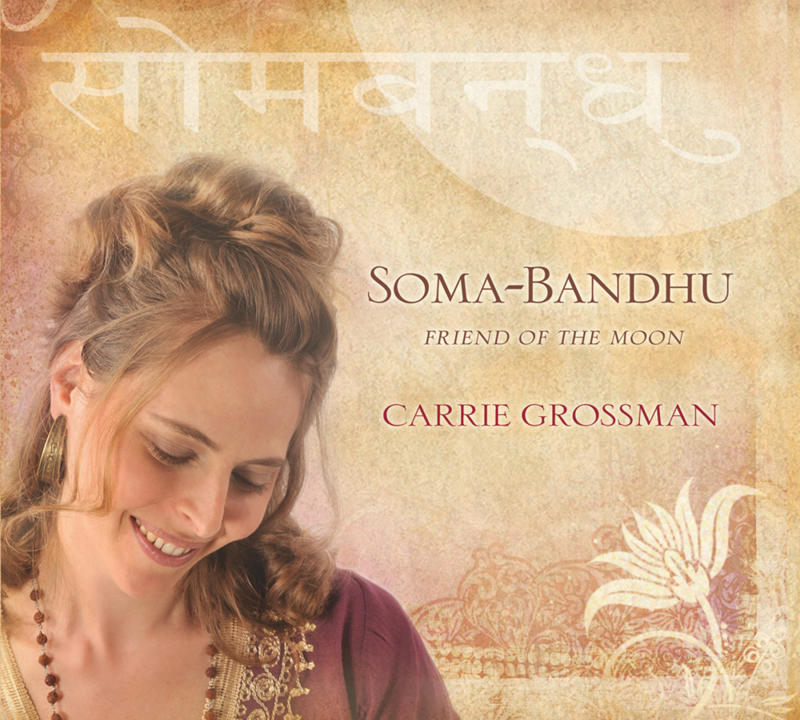lyrics
homeward
ONG NAMO
Ong Namo Gurudev Namo
Gurudev Gurudev Namo
This mantra from the Kundalini tradition is in the Gurmukhi language of the Sikhs and it’s known as the Adi mantra, which connects us to the divine teacher in our heart. Let yourself get lost in the music and offer your voice as a prayer of gratitude to the inner light.
OM MANI PADME HUM
Om Mani Padme Hum
This Tibetan Buddhist mantra is associated with the bodhisattva of compassion, Avalokitesvara, and it essentially means “praise to the jewel in the lotus”. Many people around the world recite this mantra thousands of times a day as part of their practice and it’s often written on prayer flags and prayer wheels. By chanting these words, we connect to the stream of seekers throughout time who have called on the energy of compassion.
RA MA DA SA
Ra Ma Da Sa Sa Say So Hung
Healing light, be with you
Sun, moon, earth, infinity
This meditation is based on a healing mantra from the Kundalini Yoga tradition. The mantra is composed of eight sounds: Ra Ma Da Sa Sa Say So Hung. Each of these sounds resonates with a particular essence and vibration. For instance, Ra is the Sun; Ma is the Moon; Da is the Earth; and Sa is Infinity. Sa Say So Hung means, “Infinity/Spirit, I am Thou.” Essentially, the mantra connects earth and ether to bring deep healing.
OM TARE
Om Tare Tuttare Ture Svaha
This is the Tibetan Buddhist mantra of Green Tara, the mother of liberation. One myth says that when the bodhisattva of compassion, Avalokitesvara, saw all of the suffering beings in the world, he wept—and his tears formed a lake. From the depths of that lake, a lotus flower emerged and Tara was revealed. As a compassionate mother figure, she is considered a great protector and embodiment of wisdom.
OM NAMAH SHIVAYA 54
Om Namah Shivaya
This track includes 54 repetitions of the Sanskrit mantra Om Namah Shivaya. Like all mantras, the meaning is beyond conceptual understanding, but essentially it means, “I honor the light in you.” Or “I bow to the divine within.”
SO HUM
So Hum So Hum
So Hum Shivoham
I am That I am
I am That I am
This ancient mantra essentially means, “I am That I am, Pure Consciousness—Shiva—I am”. It’s a contemplation on the profound mystery of our being. The mantra can be chanted with music or as a concentration practice with the breath. Eventually, the chant will give way to a deep inner silence.
LOKAH (PEACE IN YOUR HEART)
Om Lokah Samastah Sukhino Bhavantu
This important Sanskrit mantra means, “May all beings everywhere be peaceful and happy.” As you chant, you can imagine a stream of love flowing from your heart to all of creation—or send the prayer to anyone who is suffering, including the earth. Just make sure that, when you pray for peace, you don’t forget to include yourself.
the ram sessions
TOUCH THE SKY
There is no salvation for the soul but to fall in love.
Only from the heart can you touch the sky.
Fly, beloved, fly.
Fly, fly, beloved, fly.
Ram Hare Ram Hare Ram
When I first got my harmonium, I put a note on top with these two beautiful lines from Rumi. After several months I heard a melody and began to sing the words, which so eloquently express the essence of the bhakti path. Bhakti is about falling in love with the sacred presence that hides in every single thing. No matter what form our journey may take, when we enter the secret cavern of the heart, the brittle shell of separation softens and we taste the sweetness of our essential nature.
HANUMATE
Jai Bhajarangi Jai Hanuman
Sankata Mochana Kripa Nidhan
Sri Ram Jai Ram Jai Jai Ram
Mangala Moorati Maruta Nandana
Sakala Mangala Moola Nikhandana
This song praises Hanuman, the strong, shape-shifting, ocean-leaping, mountain-lifting, miracle-working, mischievous monkey god. Hanuman is adored around the world for his unceasing devotion to Ram, and his life is a great reminder of the unlimited power that lies within us—the power that can be awakened through selfless love and service.
THANK YOU
I’m sorry, please forgive me. Thank you, I love you.
Sri Ram Jai Ram Jai Jai Bhagavan
This powerful healing song is inspired by the Hawaiian forgiveness and reconciliation practice, Ho’oponopono. The melody was written by Parvati Sundari and the Australian group Sushumna, who introduced me to the chant in 2010. I was so moved by the practice that I began to sing the English words every night and, later, I added the Ram part. Forgiveness is such important medicine—may this song help to unburden your heart.
RAMBIENT
Sri Rama Rama Rameti
Rame Raame Manorame
Sahasranama Tattulyam
Rama Nama Varaanane
The name of Sri Rama chanted thrice with bliss shall be equal to chanting
a full round of Vishnu’s thousand names.
While working on this album, I had the desire to create a track that would saturate the listener (and the singer!) in the name of Ram. One of the engineers I was working with had a selection of old recordings from a nunnery in Bhutan. We decided to create a canvas of sound with the samples and overlay it with several tracks of electric guitar. Once complete, I spent months recording vocals—all spontaneous—and then I created a Ram Orchestra out of my voice. The end result was this abstract, ambient immersion in the name of Ram.
RAM SAGAR
(OCEAN OF RAM)
This short ambient piece is an immersion in the sweetness of Ram's name with a beautiful guitar piece as the center point.
HONEY HANUMAN CHALISA
The Hanuman Chalisa is a 40 verse prayer written by the great Ram devotee, Tulsidas. I have loved the chant for many years and one day, while playing the harmonium, this melody emerged. You can learn the Hanuman Chalisa here. Devotional artist Jennifer Mazzucco also offers an illustrated guide to the Chalisa, complete with Devanagari, transliteration, and English translation—a wonderful resource!
NARAYANA
Hari Om Narayana Narayana
Sharanam Sharanam Sharanam Bhagavan
Bhagavan... Narayana
Lord Vishnu is the all-pervasive Lord who expands into everything. He is the maintainer of the universe and the complete cosmic creation. He is also called Narayana, which means the shelter, resting place, or ultimate goal of all living entities. In Hindu theology, Vishnu is known to take form as different avatars, or Divine incarnations, to benefit the world. Krishna is considered to be one such incarnation, as is Ram. This track praises the supreme power that manifests as great souls. May we take refuge (sharanam) in their wisdom and compassion, and in the source of that light.
SAY THE NAME
Say the Name
Wash away all shame
Nothing left to lose or gain
Hare Ram Hare Krishna Vasudeva / Hare Ram Hare Krishna Bhagavan
In the dark where you can’t see, the Guru comes and sets you free
Just watch your mind, it tells you lies; the love you seek it burns inside
Hare Ram Hare Krishna...
Let love in, darling, let love in; let love in, darling, let love in
Don't turn away or run in fear, who you are is accepted here
Don't close your eyes and try to hide, you are a light, shine strong and bright
Hare Ram Hare Krishna...
Rama Ram Rama Rama Rama Ram...
This song was born in Sydney, Australia, in April 2012. During my visit I went through a challenging time and some old feelings of shame surfaced. One day when I just wanted to hide from the world, I sat down at my harmonium and this song fell out, as if it had always been there. The words were like holy medicine and, as I sang them, years of crystallized pain began to break apart. That very same night I shared the song in a kirtan, and the piece has been deeply healing for me ever since.
108 RAM
108 is a sacred number in the yoga tradition. The most common number of beads found on a mala (rosary), it is said that one full round of chanting is 108 repetitions of a mantra. Honoring this tradition, I wanted to create a piece that could be used for spiritual practice—an immersion in the name of Ram. Accompanying this chant is the haunting sound of the dilruba, a beautiful string instrument that draws the mind deep inside.
DEEP PEACE
Deep Peace of the running wave to you
Deep peace of the flowing air to you
Deep peace of the quiet earth to you
Deep peace of the shining stars to you
Deep peace of the gentle night to you
Moon and stars pour their healing light on you
Deep peace to you, deep peace to you
May you always walk in beauty
May you always rest in love
May you always feel at home
May you never feel alone
You’re not alone, you’re not alone
Sri Ram Jai Ram Jai Jai Ram
This traditional Gaelic blessing has always touched my heart and I spent many years listening to the choral version by composer Bill Douglas. One day I had the desire to play his version on my harmonium and the song took on a life of its own! I added a second section with my own lyrics and began to sing it regularly as a part of my practice. May these words bring you solace, as they do for me.
soma-bandhu: friend of the moon
INVOCATION
Ganapati Prarthana
Gannäm twa ganapatigm havamahe Kavim kavinamupamashravastamam |
Jyeshtharajam brahmanam brahmanaspata a nah shrunvannutibhissida sadanam||
Prano devi Saraswati vajebhirvajinivati Dhinamavitryavatu |
Ganeshaya Namaha | Saraswatyai Namaha | Sri Gurubhyo Namah |
Hari Om
The Ganapati Prarthana comes from the Rig Veda, India’s most ancient scripture. Dedicated to Ganesh (Ganapati), the remover of obstacles, and Saraswati, goddess of speech and the arts, this prayer is often recited at the beginning of a Vedic chanting session.
OM NAMAH SHIVAYA
Hari Om Namah Shivaya Hari Om
One translation of Om Namah Shivaya is, “I bow to Shiva, the Supreme Consciousness". When we say, “Om Namah Shivaya,” we honor the innate Divinity the dwells in the hearts of all beings.
JAI MA
Jai Ma Ma Ma
Jai Mata Ambe
Om Narayani Namo Namaste
Jai Ma means Victory to the Mother—the Mother who is known by many names: Ma, Kali, Durga, Shakti, Mary, Tara, Narayani, and infinite others. She is the womb of creation, the primal energy and nourishing love that lives in everything. When we sing Her praises, it’s as if we’re saying, “Yay Ma! I love you!”
SRI RUDRAM
The Rudram is a hymn from the Krishna Yajur Veda, an ancient Vedic scripture. In the prayer, Rudra— an early form of Shiva whose name means “roarer” or “howler” – is requested to calm his fierce appearance and bestow his blessings. The hymn is divided into two parts, each with 11 sections known as anuvakas. This particular portion features the first anuvaka.
The Rudram is a potent chant with many subtle layers of meaning. Although it is difficult to fully comprehend the words without extensive study, I feel a very strong resonance with the vibration of the sounds. When chanted with a pure intention, I believe these sounds can deeply impact the mind and soul of the listener, offering a glimpse into the vast and unbound peace that is our very nature.
HARE RAMA
Hare Rama Hare Rama
Hare Krishna Hare Krishna
For thousands of years, millions of people have chanted the names Rama and Krishna. Both Rama and Krishna are considered divine incarnations, embodiments of pure love who remove our illusions and open our hearts. As we sing their names, we surrender our burdens and take refuge in the light that dwells within us.
SARVE BHAVANTU
Sarve Bhavantu Sukhinah
Sarve Santu Niramayah
Sarve Bhadrani Pashyantu
Ma Kaschit Dukkha-Bhag Bhavet
May everyone be happy.
May everyone be healthy.
May everyone see goodness everywhere.
May no one suffer.
SRI SUKTAM
The Sri Suktam is an ancient hymn in honor of Lakshmi, the goddess of abundance and prosperity. Also known as Sri (Shree), Lakshmi embodies the energy of the divine feminine. These verses invoke her blessings and describe her radiant form: golden-hued and lotus-like—the essence of sublime beauty and bliss. It is said that the letters, syllables, and words of the Sri Suktam collectively form the sound body of Lakshmi, so listening to the chant creates an auspicious vibration, both within and without. You can find the words and traditional version of the chant here.
TWAMEVA
Twameva mata cha pita Twameva
Twameva bandhuscha sakha Twameva
Twameva vidya dravinam Twameva
Twameva sarvam mama deva deva
You are my mother and my father.
You are my friend and my Beloved.
You are knowledge and wealth.
You are my everything, O God of Gods!
108 NAMES OF DEVI
The Sri Lalita Sahasranama, also known as the Thousand Names of the Divine Mother, is a sacred hymn that worships the Divine Mother, also known as Devi or Lalita, “She who plays.” The 108 Names of Devi is a selection from the longer hymn. Each name describes a different quality of the Divine Mother and has a powerful vibration. This particular melody came to me while reading through the names, and it is an offering from my heart to the Supreme Energy of creation known as Parashakti.
You can find this version of the 108 Names of Devi in the book Puja: The Process of Ritualistic Worship, published by the M.A. Center.
LOKAH
Lokah Samastah Sukhino Bhavantu
Om Shanti
May all beings everywhere be happy!
Om Peace, Peace, Peace.
praṇām
PRANAM
Vakra-Tunndda Maha-Kaaya Suurya-Kotti Samaprabha |
Nirvighnam Kuru Me Deva Sarva-Kaaryessu Sarvadaa ||
Saraswati Namastubhyam Varade Kaama-Roopini
Vidyaarambham Karishyaami Siddhir-Bhavatu Me Sadaa
O Ma Saraswati Ma O Ma Amritanandamayi Ma
O Ma Saraswati Ma O Ma Amritanandamayi
Amritanandamayi Ma Saraswati Devi Ma
This invocation is a combination of two Sanskrit prayers. The first one is to Ganesh, the elephant-headed god who removes obstacles. The second prayer is to Saraswati, goddess of music, learning, and the arts. It essentially says, "Salutations to Saraswati, the giver of boons, the one who fulfills desires. I shall begin my studies. May there always be accomplishment for me." At the end of the song, I sing to Saraswati and my teacher Amma (Mata Amritanandamayi ~ Mother of Immortal Bliss).
GURU STOTRAM
Akhand-Mandalakaram vyaptam yena characharam.
Tatpadam darshitam yena tasmai Shri Gurave Namah.
Agyan timir-andhasya Gyananjan Shalakaya.
Chakshur-oonmeelitam yena tasmai Shri Gurave Namah.
Gurur-Brahma Gurur-Vishnu Gurur-Devo Maheshwarah.
Guru-sakshat Para-Brahma tasmai Shri Gurave Namah.
Sthavaram jangamam vyaptam yat kinchit sacharacharam.
Tatpadam darshitam yena tasmai Shri Gurave Namah.
Chinmayam Vyapi yat-sarvam trailokyam sacharacharam.
Tatpadam darshitam yena tasmai Shri Gurave Namah.
Sarva-Shruti shiro-ratna virajit-padambujah.
Vedantambuja Suryo yah tasmai Shri Gurave Namah.
Chaitanya Shashwatah shanto vyomatito niranjanah.
Bindunaad kalatitah tasmai shri Gurave Namah.
Gyanshakti-samaroodhah tattwamala vibhooshitah.
Bhukti-mukti -pradata cha tasmai Shri Gurave Namah.
Aneka-janma-sampraptah-karma-bandha-vidahine.
Atma-gyan-pradanen tasmai Shri Gurave Namah.
Shoshanam bhavsindhoshcha gyapanam saarsampadah.
Guroh-padodakam samyak tasmai Shri Gurave Namah.
Na Guror-adhikam tattvam na Guror-adhikam tapah.
Tattva-gyanat-param nasti tasmai Shri Gurave Namah.
Man-naathah Shri Jagan-nathah Mat-guru-shri jagad-guruhu.
Mad-atma sarva-bhutatma tasmai Shri Gurave Namah
Gurur-adir-anadish-cha Guruh-param-daivatam.
Guroh-parataram nasti tasmai Shri Gurave Namah.
Tvameva mata cha pita tvameva
tvameva bandhushcha sakha tvameva.
Tvameva vidya dravinam tvameva
tvameva sarvam mama-dev-deva.
The Guru Stotram is a 14-verse excerpt from a sacred text known as the Guru Gita (which comes from a larger scripture called the Skanda Purana). This beautiful chant is a prayer to the Guru—the one who takes us from darkness to light.
The word "guru" has many translations. One is "remover of darkness"; another is “heavy” - because a guru is "heavy" with wisdom. And while a guru may take the form of a body, it's far more than that. Ultimately, the guru is a principle. It's the mystery of existence—the awareness that looks out through our eyes. It's the silent presence in our heart, and the inner light that calls us home.
LOKAH
Lokah Samastah Sukhino Bhavantu
Om Shanti Shanti Om (Peace on Earth)
Om Shanti Shanti Om (Peace in your heart)
May all beings everywhere be happy!
Om Peace, Peace, Peace.



